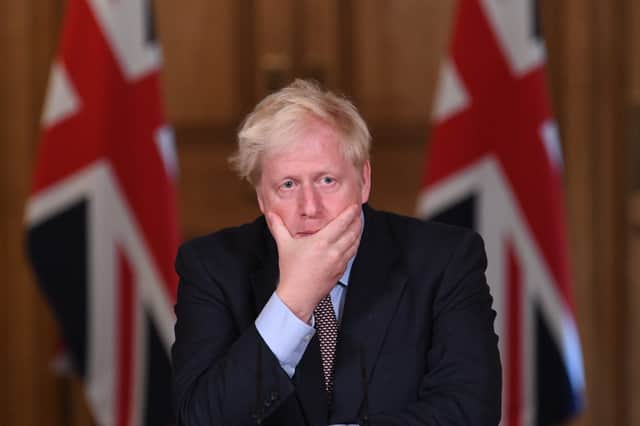Covid Inquiry live: Boris Johnson arrives early for two days of evidence


Boris Johnson will face the first of two days of questioning over his handling of the pandemic when he appears before the UK Covid-19 Inquiry.
It's off to a bad start, with the former prime minister denying deleting WhatsApp messages after it emerged he had not been able to provide the inquiry with any communications from February to June 2020.
The highly anticipated appearance by Mr Johnson is expected to see him admit that his government made mistakes in its response to the virus, but argue that its decisions ultimately saved lives.
Covid Inquiry live: Boris Johnson arrives early for two days of evidence
We begin with the chair of the Covid Inquiry Lady Hallitt criticising Boris Johnson for briefing out his evidence in advance.
She said: “I wish to express my concern about reports in the press over the last few days about the contents of Mr Johnson’s witness statement to the Inquiry and what his witness statement will be.”
Stand up for your rights
Couple of protesters have already been kicked out after standing up with signs and refusing to leave.
They weren't shown on screen, so not the most useful protest.
Whatsapp, Doc
Boris Johnson now facing questions over failing to disclose 5000 Whatsapp messages.
He doesn't know what a factory reset is, and also can't remember any discussions with scientists about making sure he kept the messages.
Convenient!
My united states of whatever
Asked what he's apologising for, and what mistakes were made, Boris Johnson appears to blame mixed messaging from the devolved nations.
He says: "Sometimes... BBC News would have one message from Number 10, And then a slightly different one, from Scotland or wherever."
Too much news
Away from the inquiry, we now have confirmation that Suella Braverman will be making a statement in the Commons later, basically having a massive go at Rishi Sunak.
One quiet day of Westminster, that's all I ask for. Will never happen.
Fantastic four?
Four people who were removed from Boris Johnson’s Covid-19 Inquiry hearing said they “didn’t want his apology”.
They said they stood up as he began apologising to hold up signs that read: “The Dead can’t hear your apologies.”
Speaking outside Dorland House in west London, Kathryn Butcher, 59, who lost her sister-in-law, told reporters afterwards: “We didn’t want his apology.
“When he tried to apologise we stood up. We didn’t block anybody. We were told to sit down.
“We didn’t sit down straight away. One of us said stayed standing, so the rest of us came out in solidarity.”
Across the detail
Asked if whether making different decisions fewer people would have died, Boris Johnson answers "not sure".
He's had years to prepare for that question, years.
Age is just a number
Boris Johnson asked why the UK had the second worst rate of excess deaths in Western Europe due to Covid, responds by denying it, before saying: "We have an elderly population, an extremely elderly population."
Admits it
Boris Johnson has acknowledged that inevitably “we may have made mistakes” in handling the pandemic.
The former prime minister said: “So many people suffered, so many people lost their lives.
“Inevitably in the course of trying to handle a very, very difficult pandemic in which we had to balance appalling harms on either side of the decision, we may have made mistakes.”
He said “inevitably we got some things wrong” but “I think we were doing our best at the time, given what we knew, given the information I had available to me at the time, I think we did our level best”.
“Were there things that we should have done differently? Unquestionably.”
Comments
Want to join the conversation? Please or to comment on this article.
